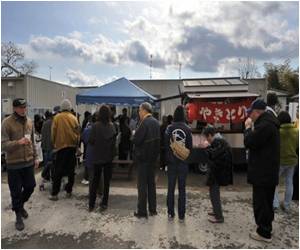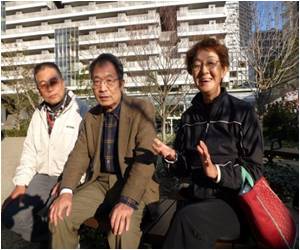WHO's cancer warning for people in Fukushima were overblown by Japan, claiming that the agency was creating unnecessary fears

But Japan's environment ministry said the WHO had overstated the risks and called on people living in the area to respond calmly to the report, which it said did not reflect "reality".
On Thursday, the WHO said rates of thyroid cancer among women who were exposed to radiation as infants within a 20-kilometre (12-mile) radius of the plant were expected to be up to 1.25 percent.
This represented a 70-percent increase over the baseline risk of thyroid cancer over a Japanese woman's lifetime, which is 0.75 percent, the UN health agency noted.
"Their calculations were made based on the assumption that people continued living inside the evacuation zone and ate banned food. But there are no such people," a ministry official said.
"Experts are still divided over ways to calculate the impact of limited levels of radioactive exposure over a long period," the official said.
Advertisement
The government ordered hundreds of thousands of people to evacuate from a no-go zone and banned sales of food from the area containing high levels of radiation.
Advertisement
While environmental pressure group Greenpeace slammed the WHO report, saying it had underestimated the risks to the population, some in Japan backed the government's response.
"It can increase peoples' fears as they just see the findings," Makoto Akashi, an official of Japan's National Institute of Radiological Sciences, told the Yomiuri Shimbun.
Norio Kanno, mayor of Iitate, a village from which residents have been evacuated because of elevated levels of radiation, expressed frustration.
"It's utterly hypothetical," Kanno said in an interview with Japan's national broadcaster NHK.
"I'm not seeking underestimation, but I'm very angry at seeing the (WHO) raising fears by overestimating data," Kanno said.
In its 166-page report, the WHO said the idea was not to give absolute figures on the number of people who would develop cancer, rather to show the heightened risk.
"In view of the estimated exposure levels, an increased risk of cancer was the potential health impact of greatest relevance," Maria Neira, the WHO's director of public health and environment, said in Geneva.
Senior WHO official Angelika Tritscher also said: "The purpose of this report is to give an indication of the magnitude of the risk, it's not absolute numbers. It's probability."
Source-AFP













